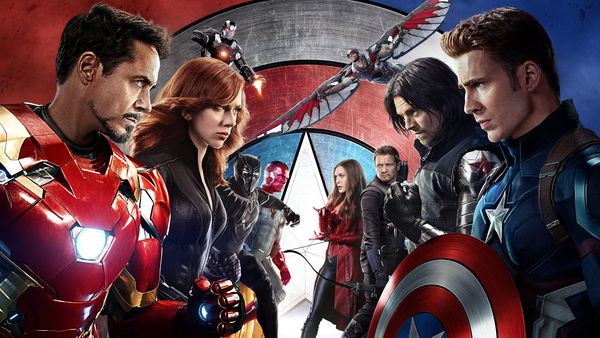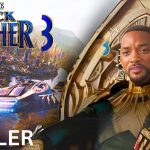Captain America: Civil War (2016)

Captain America: Civil War (2016)
*Captain America: Civil War* (2016) is a pivotal entry in the Marvel Cinematic Universe, focusing on the internal conflict among the Avengers. The film centers on the ideological clash between Captain America (Chris Evans) and Iron Man (Robert Downey Jr.) following the introduction of the Sokovia Accords, a set of legal documents designed to regulate superpowered individuals after the events of *Avengers: Age of Ultron* (2015).
The story begins with a prologue that showcases a traumatic event in Lagos, Nigeria, where an operation led by the Avengers results in collateral damage and civilian casualties. This incident, combined with past events, leads the United Nations to push for the Sokovia Accords, which require all superheroes to operate under government oversight. Tony Stark (Iron Man) supports the accords, believing they are necessary to prevent further destruction and loss of life, while Steve Rogers (Captain America) opposes them, valuing personal freedom and autonomy.
The ideological divide between Tony and Steve leads to the central conflict of the film. Their disagreement deepens when a terrorist attack on the UN assembly is attributed to the Winter Soldier (Sebastian Stan), Steve Rogers’s old friend Bucky Barnes. Tony’s support for the Sokovia Accords grows more intense, as he believes that bringing Bucky to justice will prevent further chaos, while Steve is determined to protect his friend, who he believes is being manipulated.
As tensions escalate, the Avengers split into two factions. Tony leads one side, comprising characters like Black Widow (Scarlett Johansson), War Machine (Don Cheadle), and Spider-Man (Tom Holland), while Steve leads the opposing side, which includes Falcon (Anthony Mackie), Ant-Man (Paul Rudd), and the newly introduced Black Panther (Chadwick Boseman). The ideological and physical confrontation between these factions culminates in a spectacular battle at an airport in Germany. This sequence is marked by thrilling and well-choreographed action, showcasing each character’s unique abilities and their conflicting motivations.
The film also introduces the complex motivations of the characters involved. Black Panther’s personal quest for vengeance against the Winter Soldier, due to the death of his father, adds depth to the story, revealing how personal losses can drive individuals. Spider-Man’s involvement adds a fresh, youthful perspective, as he grapples with his place in this larger conflict.
The climax of the film brings the conflict to a personal and dramatic resolution. The final battle takes place at the remote Siberian facility where the Winter Soldier’s origins are revealed. Here, the full extent of the conspiracy involving Zemo (Daniel Brühl), the villain manipulating events to turn the Avengers against each other, comes to light. Zemo’s plan to pit Tony against Steve, using the revelation of Bucky’s involvement in the murder of Tony’s parents, serves as a powerful emotional catalyst for the confrontation between the two former friends.
In the aftermath, the film concludes with the Avengers fractured and their relationships strained. Steve Rogers and his team go into hiding, while Tony Stark is left to deal with the consequences of the conflict and the shattered unity of the Avengers. The film ends on a note of unresolved tension, setting the stage for future developments in the Marvel Cinematic Universe.
*Captain America: Civil War* effectively combines action, character development, and thematic exploration of power and responsibility. The film examines the impact of superhero actions on the world, the nature of accountability, and the personal costs of conflicting ideologies. It delivers both a compelling narrative and spectacular set pieces, making it a significant and memorable entry in the Marvel Cinematic Universe.











